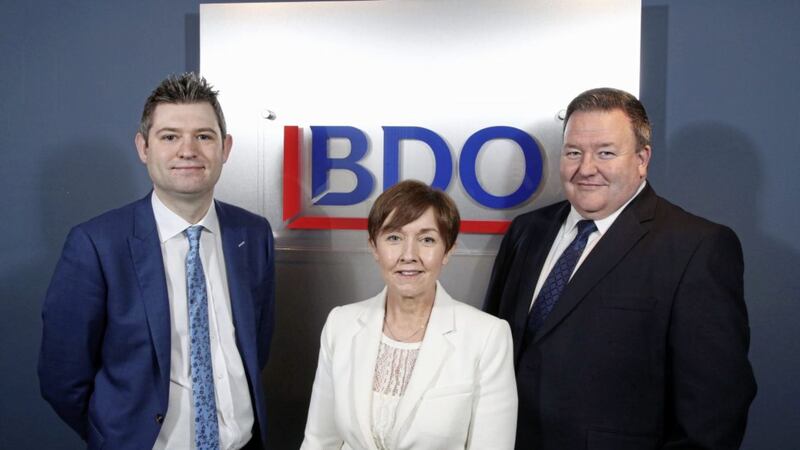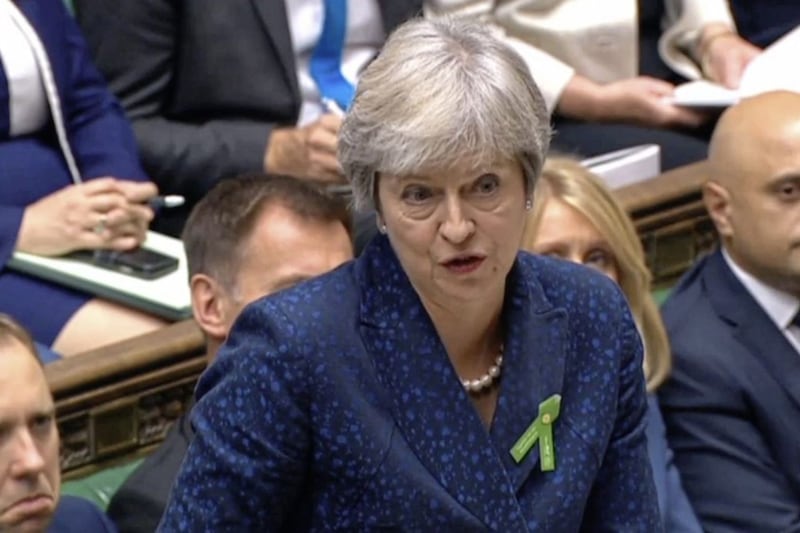THE north's economy was the weakest performing out of all UK regions at the start of the year, with the manufacturing and services sectors hitting five-year lows, new research show.
The latest Quarterly Economic Survey (QES) from the Northern Ireland Chamber of Commerce and Industry (NI Chamber) and business advisors BDO has revealed that the Northern Ireland economy started the year with growth continuing to slow and domestic sales balances at their lowest level since 2013.
The survey, which covers the first three months of the year, also places the north as the weakest performing of the 12 UK regions in most areas.
Manufacturing is a particular cause for concern with just one of the 14 key balances ranking above the UK average. Domestic sales slowed considerably in the first quarter of the year, while the outlook for the next three months is not much brighter, with more manufacturers expecting UK sales to fall rather than rise. The export market also weakened, while the sector's cashflow position is the lowest on record. Fewer manufacturing firms are also trying to recruit with 48 per cent of respondents engaged in the process in comparision to 64 per cent at the end of the year.
The services sector showed signs of sluggish growth at the start of the year, with over a third of key balances above the UK averages. However the sector is far from buoyant, with turnover and employment balances falling. Domestic sales and orders balances have also continued on a downward trend first recorded at the end of 2016, while the north remains the only region with negative export balances.
Overall businesses across both sectors are less confident around turnover and profitability growth over the next 12 months, while Brexit is an ongoing concern.
One in four members state they have made changes to their business model as a result of the EU referendum, while almost one in 10 have established a presence outside the north, with a further 20 per cent considering the move. Although 53 per cent of respondents say they have been unaffected by Brexit, one in four rate their short term prospects as poor because of the EU vote and cite border uncertainty as one of the main concerns.
In terms of wages 76 per cent of those surveyed said they felt pressure to increase staff pay, with growing competition to retain workers cited as a key issue. Almost two thirds of members said they are expecting to award some form of pay rise in 2018 with a third (34 per cent) stating this will be an increase of 2 per cent or more.
Head of policy at the Northern Ireland Chamber, Christopher Morrow said it has been a poor start to 2018 for the local economy.
“We are seeing a growing sense of frustration among our members at the lack of progress on major issues including Brexit and the lack of Executive which are impacting on businesses’ bottom line. We can't accept this any longer - it is damaging the economy."
Brian Murphy, managing partner at BDO Northern Ireland said it it is not all doom and gloom in the Northern Ireland economy
"Unemployment in Northern Ireland is currently at its lowest rate in a decade, and this coupled with the findings of this report, that local businesses are still recruiting, is a demonstrable indication of the confidence of local businesses to continue to grow despite the challenges that exist.
“The absence of the NI Executive and the lack of clarity regarding the arrangements for Brexit is clearly a matter of concern for many. However, this report shows there is also an increase in investment intentions by local businesses. This is a welcome sign that despite the current uncertainty at a government level, businesses in Northern Ireland will persevere and plan for future success," he added.








